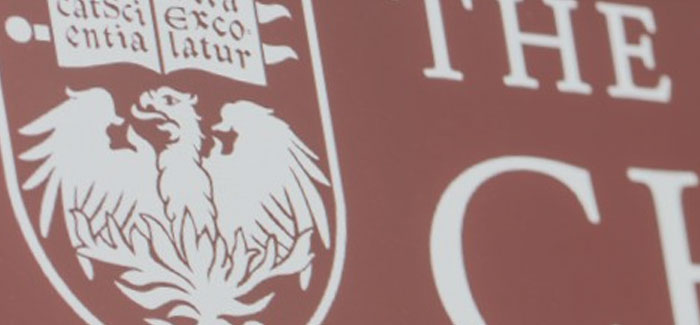Letters to the editors
Readers sound off on Dialogo past issues.
Questions for the ages
Two amusing items in the Spring Dialogo led me to reminisce about my graduate student days (1956–59) in the Division. One was Lord Kelvin’s dictum, “When you cannot measure your knowledge is meager and unsatisfactory” carved into the SS building’s wall. The other was Merriam’s removal of the “s” from “Social Science(s).” A half-century of dispute and cogitation, and neither of the two issue-sets have come closer to resolution. Yes, Kelvin’s physicist concept of measurement has been found to be much too narrow, but today’s mathematical models based on abstract algebras or nonlinear dynamics do indeed “measure” processes of perception or even social aggregations.
And whether there exists or should exist behind the numerous specialized social sciences, from, say, economics to experimental aesthetics, some common “spirit” or set of values is very much up for grabs. Would such even be desirable?
Michael F. Halasz, AB’50, AB’57, PhD’59 (Psychology)
The wisdom of a few
As I read the article on “The Nature of Wisdom,” I wondered if the project included a social-historical dimension. It might profit by focusing on individuals who have predicted correct results on one or more occasions that other intelligent persons have missed. By looking at such persons—living or dead (viewing their socio, neuro, etc., distinctive features)—researchers might be able to set them apart from the masses. Although the project is in the Department of Psychology, the historical-social dimension, if not already a part of the project, might prove revealing.
Henry S. Bausum, PhD’64 (History)
Social Sciences: What are the limits?
I’d like to comment on the “Nature of Wisdom” article. My opinion is that this project shows the worst possible face of academics. Is no one in the Division of the Social Sciences willing to admit that the emperor has no new clothes?
Academics, by its nature, and by the rules it uses to legitimate research results, is not equipped to address the question. This is obvious and the foolishness of the effort is displayed in the quote from the article that “(t)he goal of the Defining Wisdom Project is to ascertain whether it is possible to have productive conversations about wisdom across intellectual divisions—and whether those conversations will enable us to conduct new, productive scholarship that affords insight into what wisdom is.”
Before you dismiss me as some anti-intellectual crank, let me tell you that I have a great love for living the examined life, and a high regard for U of C, my undergraduate alma mater Cornell, and all of our institutions of higher learning. But wisdom is experience-based and being-based; it can't be captured by gathering and objectifying data.
It is the hubris of academics that makes it equate itself with all of life and keeps it ignorant of its own limits.
Avram Chetron, AM’70 (Political Science)

